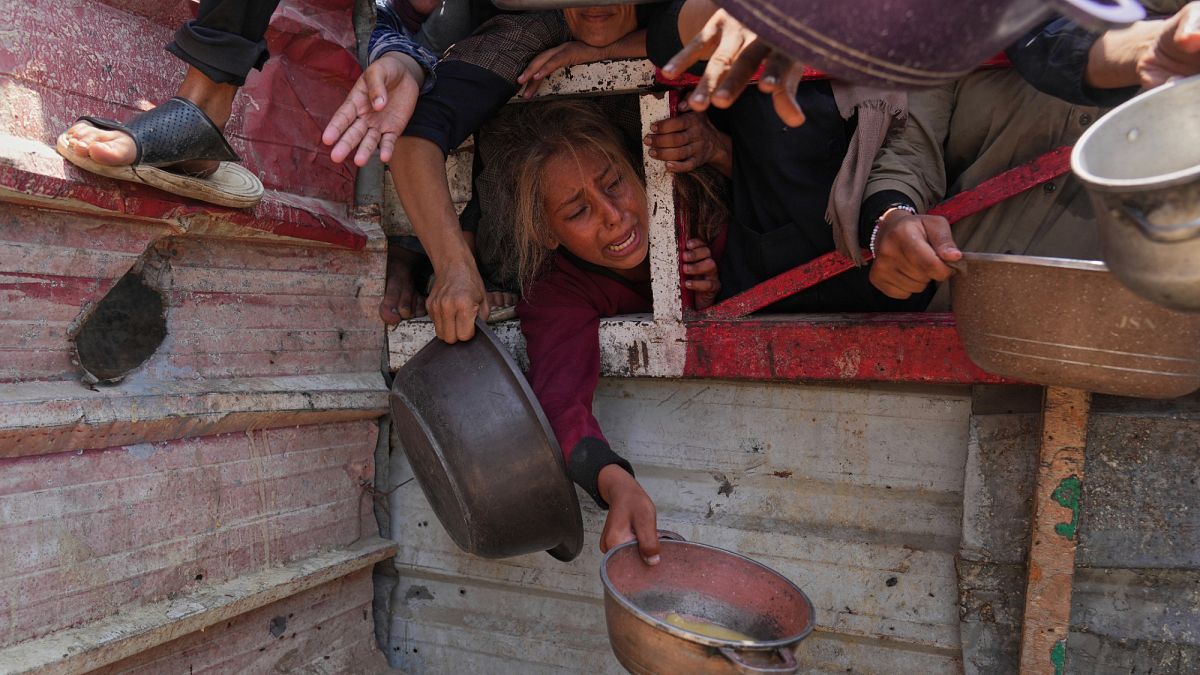

In a stride towards alleviating the humanitarian distress in the Gaza Strip, Israel has announced the commencement of airdrops of aid, alongside the establishment of humanitarian corridors for United Nations convoys. These efforts are poised to begin on Saturday night, reflecting a significant move towards relief and assistance in a region often beset by suffering. This development comes at a time when the leadership of France, Germany, and the UK, colloquially known in diplomatic circles as the E3, have intensified their appeals for a ceasefire.
The E3 leaders’ plea follows a series of communications aimed at addressing the urgent needs in Gaza. Prime Minister Keir Starmer of the UK relayed that during their discussions, the leaders expressed unanimous concern about the deplorable conditions faced by residents of the affected area. Their united front underscores a global humanitarian focus, striving for peaceful resolutions and stabilization in volatile regions. These diplomatic engagements followed closely on the heels of French President Emmanuel Macron’s announcement to recognize Palestinian statehood, further reinforcing international attention on the ongoing conflict.
Meanwhile, the tension is palpable on another frontier in Southeast Asia, where Cambodia has fervently called for an immediate ceasefire with Thailand. Since the beginning of their recent conflict, the exchanges have claimed at least 30 lives and displaced thousands, compelling both governments and international observers to seek swift, peaceful resolutions. With these appeals, Cambodia aims to stem the tide of escalating hostility and promote dialogue as a path forward.
Beyond regional conflicts, the broader sphere of international diplomacy has also seen significant dialogue, particularly concerning Iran and the resumption of nuclear discussions. These talks, involving the E3 and Iran, highlight the persisting complexity of nuclear negotiations. Despite the lack of a breakthrough in recent meetings in Istanbul, participants remain committed to diplomacy and reaffirm their openness to sanctions like the “snapback” mechanism if Iran does not comply with international nuclear regulations.
These concerted efforts on multiple fronts highlight a shared global commitment to peace and stability. In an interconnected world besieged with complex challenges, such diplomatic undertakings serve as a beacon of hope, emphasizing negotiation and cooperation over conflict. At the heart of these efforts lies an understanding that transformative change is possible through continued dialogue and humanitarian response.
As nations like Israel take practical steps to open humanitarian pathways and leaders advocate for ceasefires, the global community watches closely, hopeful for progress and stability. These actions not only alleviate immediate suffering but also pave the way for enduring peace and understanding among nations. The calming presence of diplomacy and humanitarian action reminds us all of the powerful impact of unity and collective goodwill.
Source: {link}
